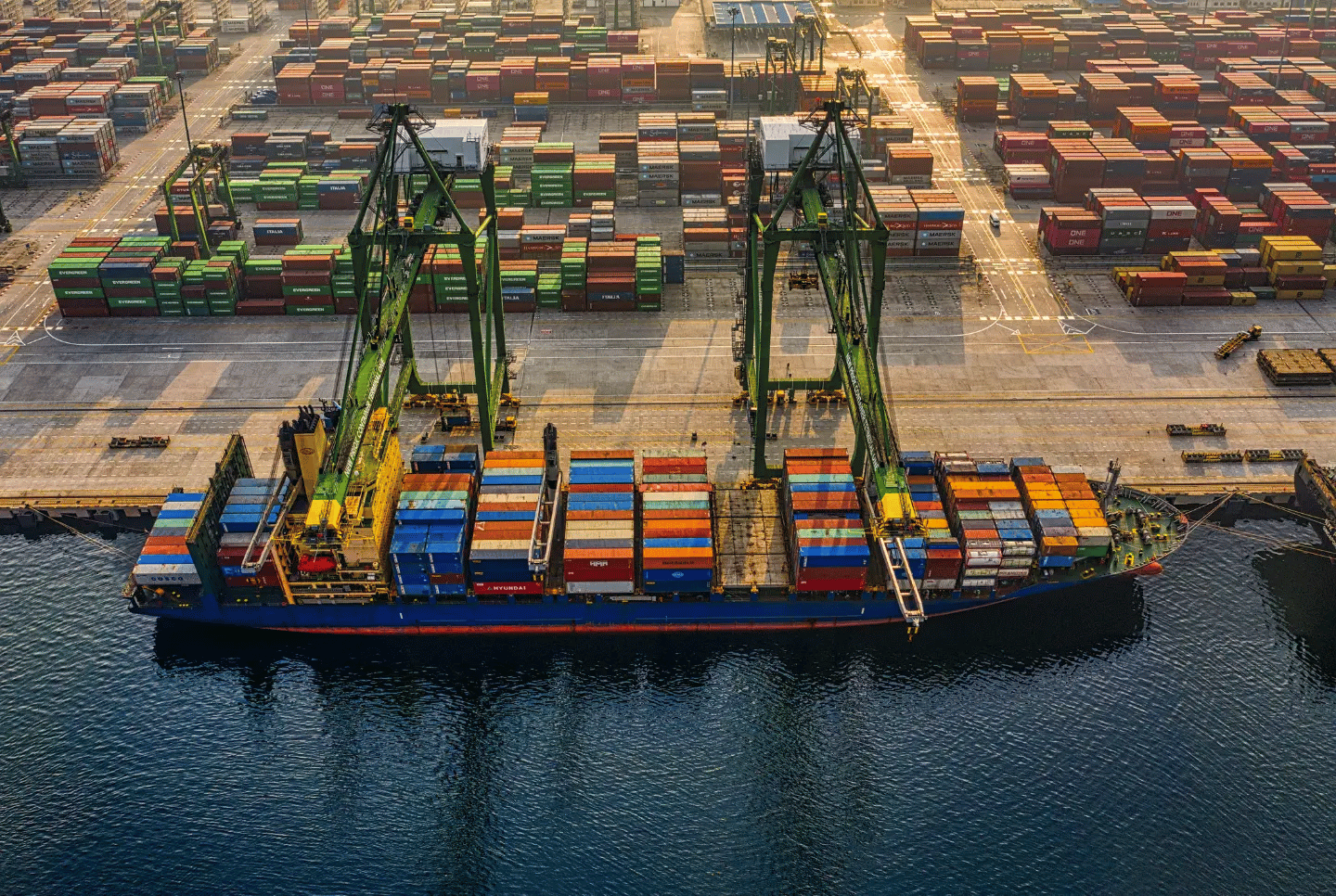
Technology plays a vital role in the fast-paced world of supply chain operations. In fact, 90% of global organizations expect to prioritize investments in digital tools to augment physical spaces and assets with digital experiences by 2023. Logistics organizations rely on complex tech stacks to achieve efficiency, minimize costs, and remain ahead of the competition. Tools like transportation management systems and warehouse management systems, invoicing and 3PL services, fleet maintenance systems, and a plethora of such tech tools are a part of any logistics and supply chain outfit today. Trouble arrives when these systems need unique integrations or become incompatible with each other, creating multiple challenges for key stakeholders who need to use these systems consistently.
In essence, a technology stack or software stack is a set of software subsystems or components needed to create a complete platform such that no additional software is required to support applications. Integrating and optimizing these tech stacks for different stakeholders like freight forwarders and shippers, on the other hand, can be difficult. Legacy systems, unconnected software, and out-of-date processes obstruct visibility and cause disruptions in operations.
Enter the logistics and supply chain integration platforms and tools that are reshaping logistics collaboration. If you are one of the few stakeholders who recognize the value of your tech and support systems and understand how technology operates, it becomes your prerogative to take charge of logistics integration within your team or organization.
As a good steward of your logistics technology, you must embrace supply chain and logistics system integration and use pre-built adapters to seamlessly connect systems. Companies that use this responsible approach get increased visibility, automated activities, and boost collaboration. Connecting customers, vendors, partners, and internal systems seamlessly creates a unified ecosystem, promoting operational efficiency and trust. Accept responsible stewardship to realize the full potential of your logistics technology system.
The Concept of Responsible Tech Stack Stewardship
Responsible integration and being a good steward of a tech stack are crucial elements for achieving supply chain efficiency. It entails a holistic approach to managing and optimizing technology in logistics operations rather than merely linking systems. Here are five aspects you need to focus on to be a responsible steward of your logistics tech stack.
1. Focus on Scalability & Adaptability
A well-managed technology stack should be adaptable to future growth and changing business requirements. It should be able to integrate seamlessly with new technologies, software changes, and developing industry standards. Companies may secure long-term success and stay ahead of the competition by future-proofing their technology stack.
2. Ensure Data Integrity and Security in All Your Tech Systems
A good steward recognizes the importance of accurate, standardized, and secure data sharing throughout the supply chain. Encryption, access controls, and data validation standards, among other data governance measures, maintain the integrity and security of sensitive information. This not only reduces the danger of data breaches but also builds confidence among stakeholders.
3. Promote Interoperability
A well-managed technology stack allows for seamless collaboration with external partners, resulting in an efficient flow of information and streamlined procedures. Integration with customers, vendors, and partners improves visibility, allows for real-time communication, and allows for effective coordination, all of which lead to better decision-making and faster response times.
4. Ensure Relevant User Experience
Employees and stakeholders can explore and use the system more efficiently with a well-designed interface and intuitive workflows. Training programs and user assistance should be in place to enable staff to fully utilize the tech stack, maximizing productivity and reducing user annoyance.
5. Prioritize Regular Evaluations & Optimization of the Tech Stack
Companies can discover areas for improvement and implement necessary improvements by continuously monitoring system performance, analyzing important indicators, and gathering user input from their tech tools. This iterative process guarantees that the technology stack remains aligned with business objectives while also keeping up with changing industry trends.
Responsible tech stack stewardship is essential for supply chain efficiency. Scalability, data integrity, interoperability, user experience, and ongoing optimization are all part of it. Logistics companies can build a solid foundation for success by embracing these concepts and employing logistics integration platforms.
The Power of Logistics Integration Systems in the Supply Chain
A well-integrated tech stack in the supply chain can profoundly impact business operations and return on investment (ROI). By connecting disparate systems and streamlining processes, companies can unlock a range of benefits and enhance overall efficiency. Here are some real-time benefits of utilizing a logistics or supply chain integration platform.
Improved Visibility
Companies receive real-time insights into their operations by seamlessly linking multiple technologies across the supply chain. This increased insight enables them to spot bottlenecks early, address issues quickly, and make data-driven decisions. A comprehensive picture of the supply chain enables organizations to optimize their processes and allocate resources more effectively, whether it's tracking shipments, monitoring inventory levels, or analyzing customer trends.
Automation of Manual Tasks & Repetitive Processes
Companies can redirect their resources towards more value-added activities by eliminating time-consuming manual interventions. This automation not only enhances productivity but also reduces the risk of human error, leading to improved accuracy and customer satisfaction.
Augment Features & Capabilities to Further Drive Efficiency
Logistics and supply chain integration platforms like Chain.io offer a range of tools and adapters that enable seamless integration with customers, vendors, partners, and internal systems. This opens up opportunities for collaboration, data exchange, and coordinated decision-making. For example, integrating a transportation management system with an e-commerce platform can automate order processing, streamline fulfillment, and improve delivery timelines.
Positive Impact on ROI
Companies can save money and increase profits by optimizing processes, minimizing manual labor, and improving visibility. Furthermore, improved operations result in faster reaction times, shorter lead times, and increased customer satisfaction, leading to customer loyalty, repeat business, and, ultimately, higher revenue.
The power of a well-integrated tech stack in the supply chain cannot be underestimated. The benefits are far-reaching from improved visibility and automation in logistics and supply chain management to augmented features and enhanced ROI. By leveraging logistics integration platforms and supply chain integration platforms like Chain.io and embracing responsible tech stack stewardship, businesses can elevate their operations, gain a competitive edge, and thrive in the dynamic world of supply chain management.
The Risks of Irresponsible Tech Stack Management
While responsible tech stack management can bring numerous benefits, the risks associated with poorly managed tech stacks cannot be ignored. Failing to address these risks can lead to significant business challenges and financial implications.
Difficulty in Operationalizing Software
When systems are not properly integrated, data silos are created, inhibiting the flow of information and hindering collaboration. This fragmentation can result in delays, errors, and a lack of visibility across the supply chain. Inefficient processes, manual workarounds, and duplicated efforts become commonplace, impacting productivity and customer satisfaction.
Increased Costs
When systems are not properly integrated, financial constraints can also occur due to manual labor, inefficient resource allocation, and missed opportunities for automation. Additionally, decision-making becomes challenging without real-time visibility and accurate data, potentially leading to suboptimal choices that can impact profitability.
The cost of doing nothing in the long run should not be underestimated. Failure to adapt and optimize tech stacks in a continually evolving industry can put organizations at a competitive disadvantage. Companies that stick to old systems risk falling behind as market dynamics change and customer expectations grow. The cost of maintaining legacy systems, potential interruptions from unsupported software, and missed possibilities for innovation can all significantly impact long-term success.
How Logistics Companies Can Overcome Challenges & Embracing Logistics Integration Platforms
Although there may be problems in implementing an integrated tech stack, organizations can overcome these obstacles and reap the benefits of seamless communication. Concerns about complexity, cost, and opposition to change are common complaints. Companies can overcome these objections by getting expert advice and using best practices in tech stack management. Here are a few methods a responsible steward of technology can leverage:
Partner With Expert Logistics Integration Platforms Like Chain.io
When navigating the challenges of integration, expert advice is crucial. Collaboration with established providers, such as Chain.io, provides access to supply chain knowledge and pre-built adapters to leading supply chain software platforms, which simplifies the integration process. The Chain.io platform makes it simple to connect legacy software with the latest logistics tech offerings, shortening integration time from months to weeks, or weeks to days.
Stick to Integration Best Practices
Adopting best practices is critical for efficiently managing a tech stack. Scalability, data integrity, interoperability, user experience, and ongoing optimization should be prioritized by businesses. Businesses can reduce risks, enhance productivity, and maximize the value of their technology stack investments by adhering to industry best practices. Also, dealing with objections frequently necessitates a change management strategy. Clear communication about the benefits, training programs to address concerns, and including important stakeholders in decision-making can all assist in overcoming reluctance to change.
Logistics and Supply Chain Integration Tools Directly Bring Responsible Stewardship To Your Logistics Tech Stack
Being a responsible steward of your technology stack is critical to increasing supply chain efficiency. Integrated systems provide real-time visibility, automation, and streamlined collaboration, resulting in better decision-making and cost savings. Businesses can realize the full potential of their tech stack in goods forwarding and shipping by embracing integration and using platforms like Chain.io.
The power of a well-integrated tech stack cannot be underestimated. It requires a strategic approach, expert guidance, and adherence to best practices. By overcoming challenges, addressing objections, and continuously adapting, businesses can build a stronger, more efficient tech stack that drives operational excellence and keeps them ahead in the competitive landscape of the supply chain industry. Embrace integration today and unlock its transformative benefits to your logistics operations.
Chain.io is natively integrated into the industry's leading technology platforms. With our pluggable component architecture, you can assemble integrations between your internal systems, the latest SaaS platforms, your customer's legacy systems, and more. Explore Chain.io’s pre-built integrations to learn more.


